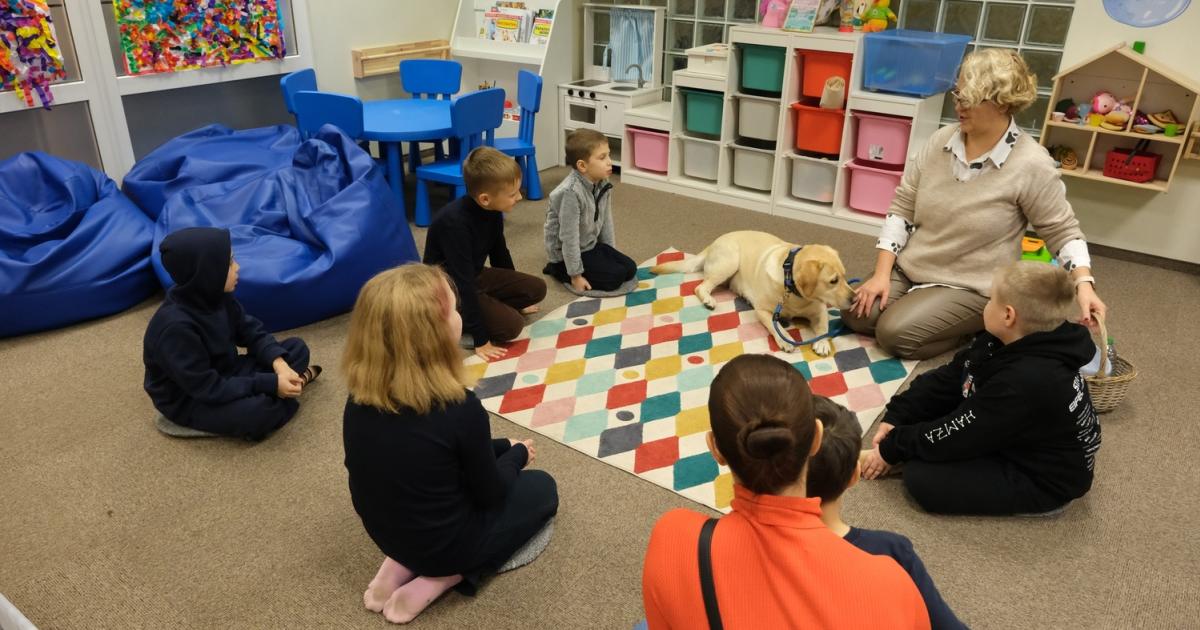The power of canine therapy lies in the unique bond between humans and dogs, helping children heal and adapt to their new and unfamiliar surroundings. Eva’s mother has noticed that after each therapy session her daughter’s anxiety decreases and is hoping someday to make Eva’s dream a reality. “Dogs are not just companions—they’re four-legged therapists, intuitive enough to pick up on emotions and flexible enough to adapt to different needs,” explains Joana Grygutis, a child psychologist and canine therapist who leads the classes with an enthusiastic Moka.
Therapy dogs such as Moka go through over a year of intensive training and socialization to prepare them for their role as dog therapists. Only dogs that pass the rigorous programme and show a strong desire to connect with people are chosen for their new careers.
Sessions at MiCenter are not only about interacting with dogs—they are structured to empower empathy, patience, and communication skills for these traumatized kids. Children engage in creative tasks, learn to communicate respectfully with Moka and each other, and even manage to pick up a few Lithuanian phrases. “Life has been a whirlwind of emotions for these Ukrainian children. They’ve had to leave their homes, schools, and adapt to a new culture. They learn how to take care of a dog thus developing close connections with the pet, and these connections extend well beyond the classroom, helping them to feel connected to life around them”, explains Joanna proudly.
“Over the past year, IOM Lithuania has organized four therapy groups with 10 children attending each session and we are always exploring new ways to assist children from war zones to find security and belonging here in Lithuania. This is where Joana and Moka come in,” shares Eitvydas Bingelis, Head of IOM Lithuania.
Through this simple yet profound connection with dogs, Eva and others like her are finding their way towards a life of resilience, joy, and a renewed sense of hope.
This story was written by Božena Zaborovska-Zdanovič, bzaborovska@iom.int
